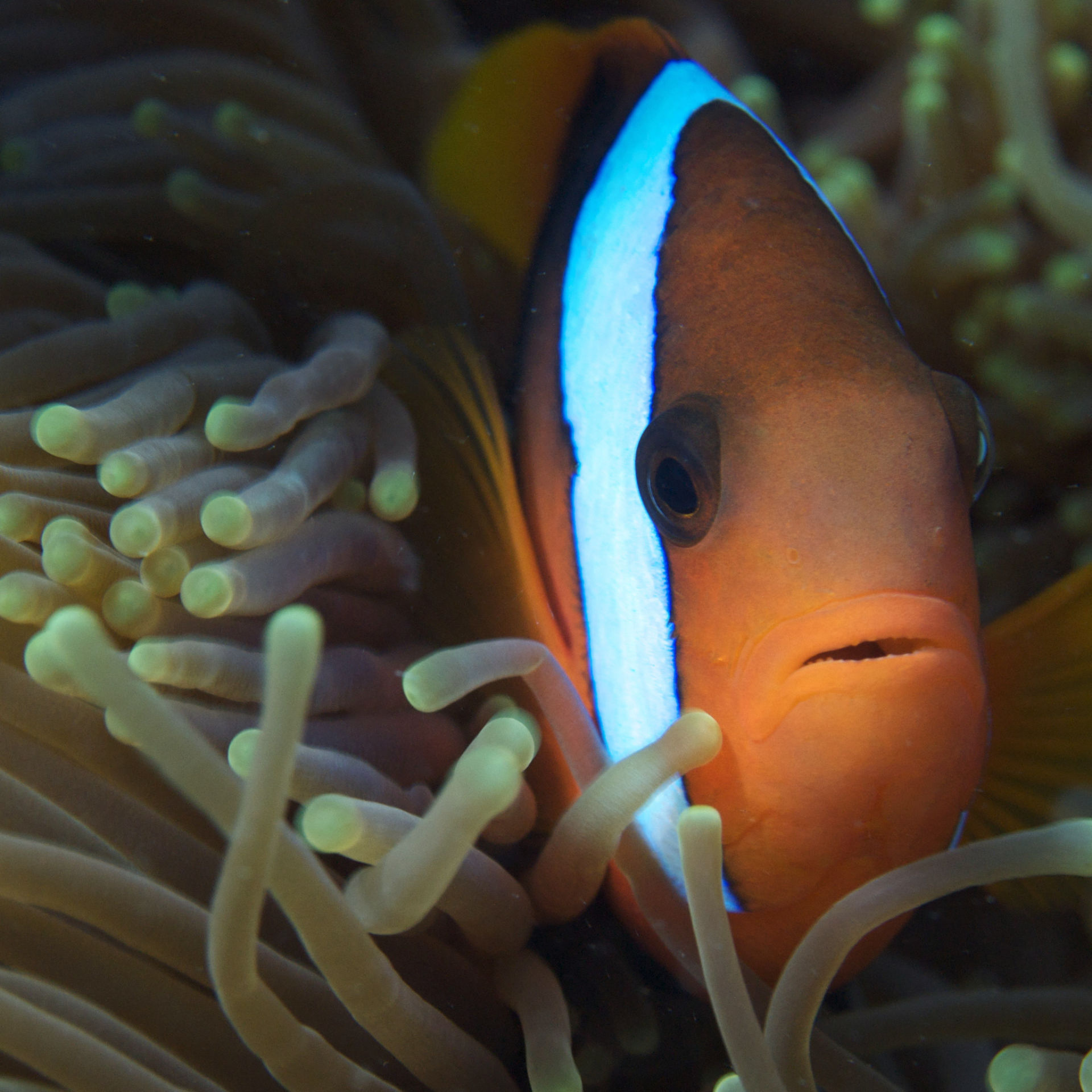
‘The Great 8’ Animals of the Great Barrier Reef Great Barrier Reef Foundation
Clownfish or anemonefish are fishes from the subfamily Amphiprioninae in the family Pomacentridae. Thirty species of clownfish are recognized:. Anemonefish are endemic to the warmer waters of the Indian Ocean, including the Red Sea, and Pacific Ocean, the Great Barrier Reef, Southeast Asia, Japan, and the Indo-Malaysian region.
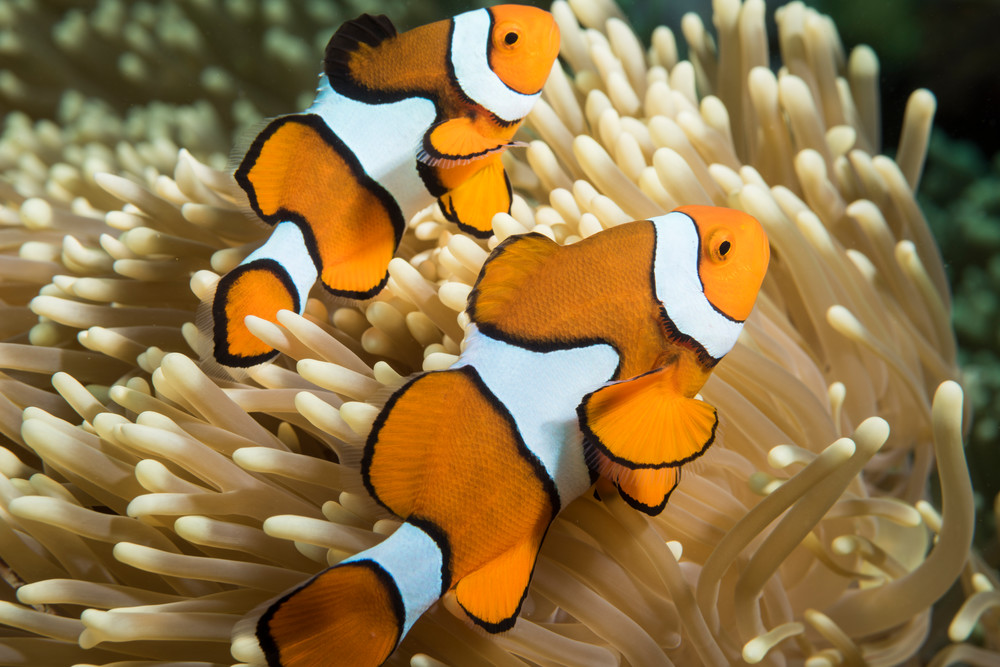
Clown Anemonefish Pair, Great Barrier Reef, Australia
The clownfish is small, brightly colored, and protects itself by hiding in anemones. Its unique relationship with the sea anemone through which it passes its larval stage is of interest to scientists studying reef ecology. Clownfish eat a variety of crustaceans, mollusks, worms, and other invertebrates. They also consume a large amount of algae.

Great Barrier Reef Pictures, Photos & Facts Queensland,
Fact: clownfish are curious creatures. If you've ever dunked your head underwater on a reef you might have noticed their interesting behaviour in relation to other fish and plant life - all part of the incredible ecosystem of the Great Barrier Reef in Queensland.

Clownfish The Great 8 Southern Great Barrier Reef
Anemonefishes, better known as clownfishes, are perhaps the most famous among the inhabitants of one of Australia's iconic landmarks, the Great Barrier Reef. Thanks to their distinct colouration and their debut on the big screen, which made them a household name, most people could easily tell an anemonefish from any other reef fish species.

Coral Reef Fish Are More Resilient Than We Thought, Study Finds NCPR News
Townsville, Australia CNN — The humble clownfish is smaller than a human fist. But when a diver approaches its underwater home, among the tentacles of a sea anemone on the world's coral reefs,.

Clownfish The Great 8 Southern Great Barrier Reef
Clownfish on the Great Barrier Reef Clownfish Habitat and Diet Clownfish are found in warm waters, such as the Red Sea and Pacific Oceans, in sheltered reefs or lagoons, living in anemone. Clownfish eat various small invertebrates and algae, as well as food scraps the anemone leaves behind. Symbiotic Relationship
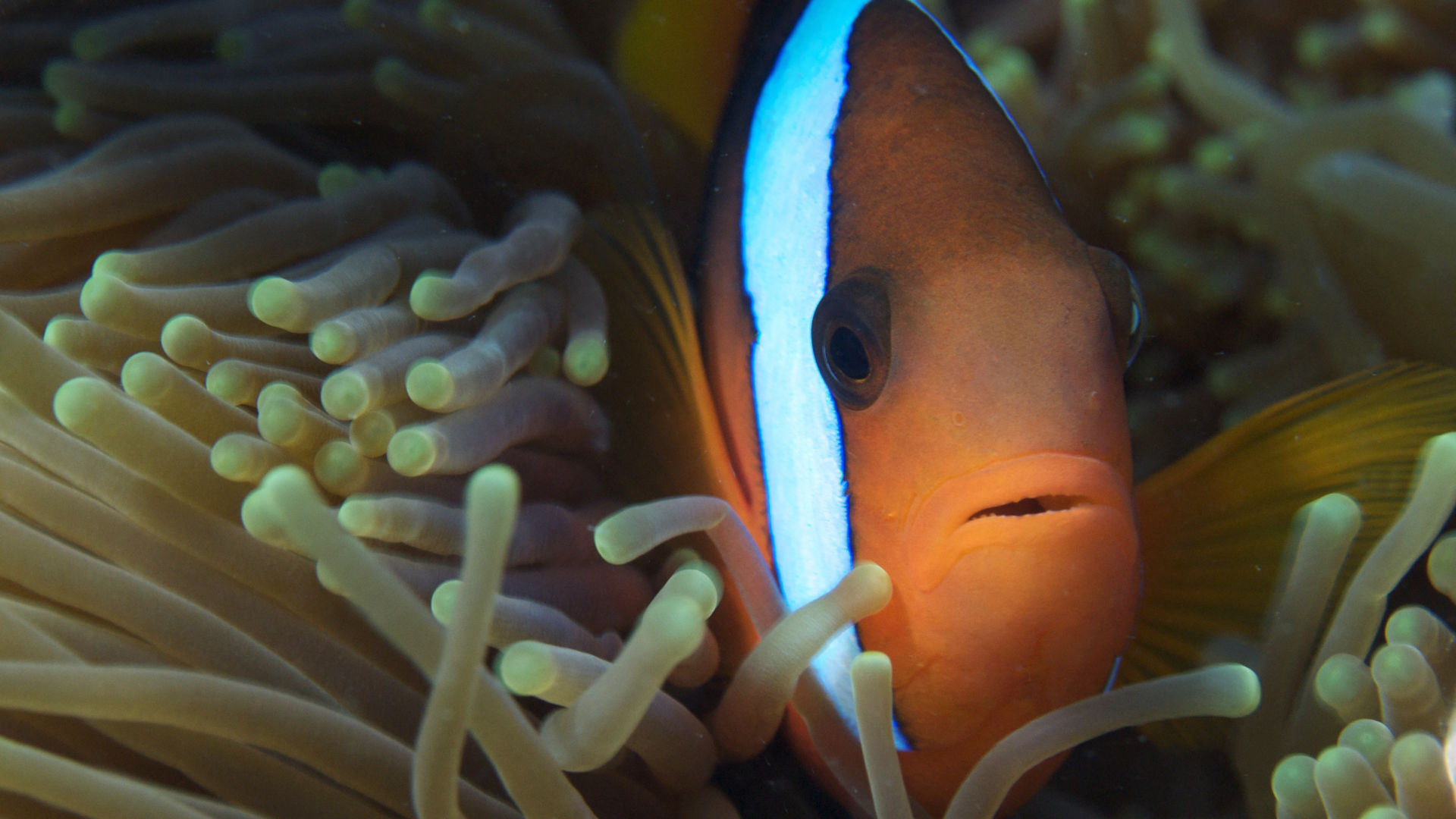
Clownfish Facts Great Barrier Reef Foundation Great Barrier Reef Foundation
5-Star Rated Great Barrier Reef Tickets, Trips and Activities! Book Top Tours on Viator. Great Barrier Reef Tours & Tickets are Selling Out Fast. Book Now to Avoid Disappointment
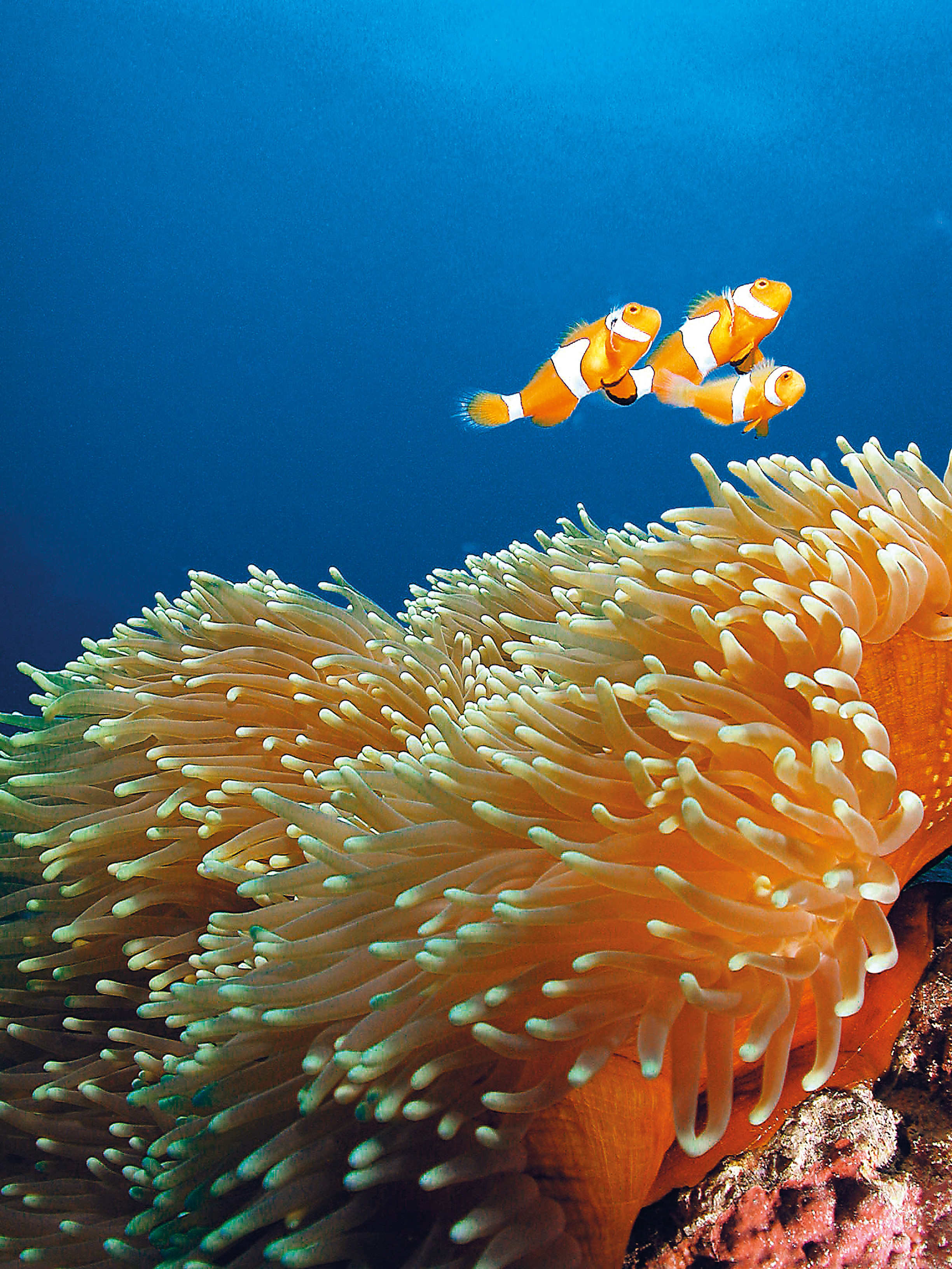
Australia's Great Barrier Reef Top 10 List Swain Destinations Travel Blog
Group Name: School. Average Life Span In The Wild: 6 to 10 years. Size: 4.3 inches. Size relative to a teacup: Anyone with kids and a DVD player probably thinks they know all there is to know.
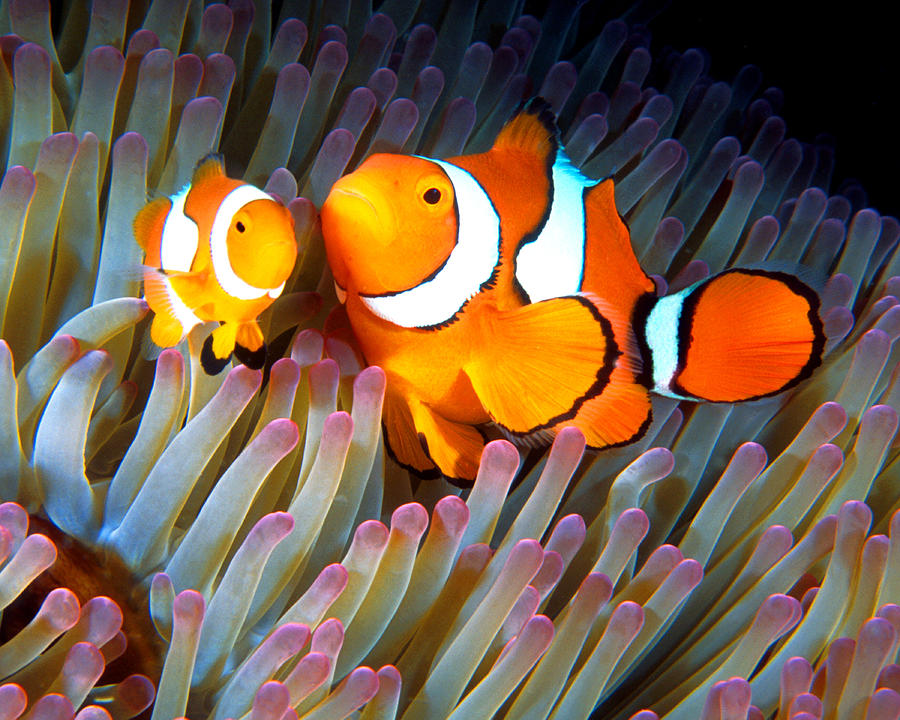
Clownfish in Anemone, Great Barrier Reef 2 Photograph by Pauline Walsh Jacobson Pixels
Order Your Cairns Tours With Expert Guides Guaranteed. Book Tickets for the Best Prices. Book Your Cairns Tours Online. Find the Best Deals for 5-Star Rated Tours & Activities.

Clown fish, Great Barrier Reef Hot Getaways
Clown Fish. Clown fish, or anemone fish as they are sometimes known, belong to the Damselfish family that includes sergeant majors and chromids. There are 28 species in the world, they are generally small in size (the largest species attaining 16cm maximum in length), and usually have some orange coloration on their bodies.
:max_bytes(150000):strip_icc()/clownfish-in-anemone-on-the-great-barrier-reef-888840676-5b983ecac9e77c0050f915ab.jpg)
The Animals of the Great Barrier Reef
While Clownfish are just one of the 1,625 fish species that call the Great Barrier Reef home, happily, spotting a clownfish isn't difficult. Because these adorable, small, orange, white and black fish have a symbiotic relationship with widespread sea anemones, they can be found along the length of the reef.
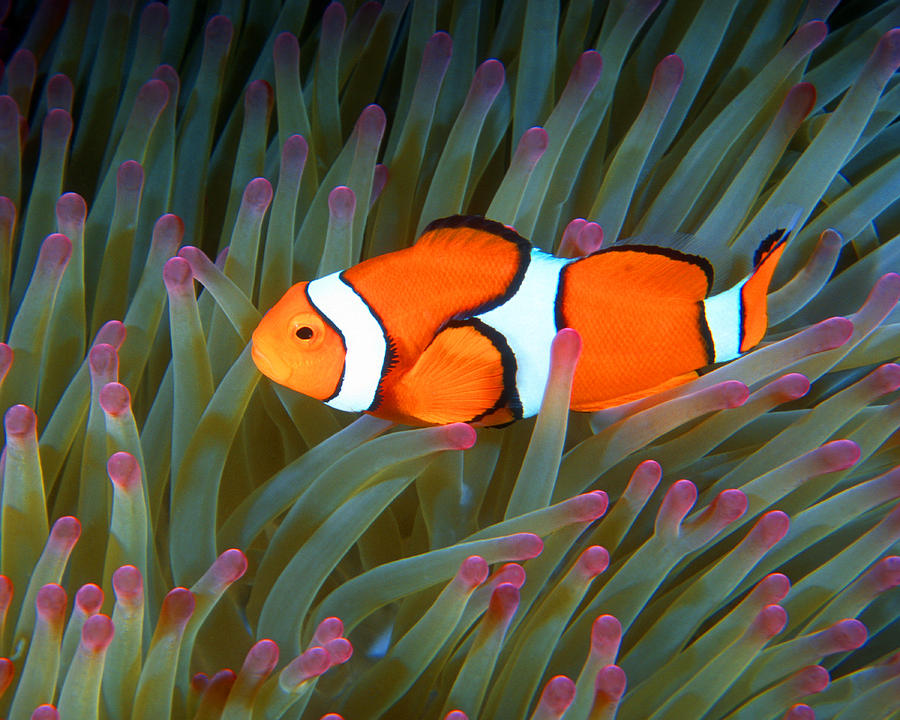
Clownfish in Anemone, Great Barrier Reef 1 Photograph by Pauline Walsh Jacobson
Clownfish, instantly recognizable and popularly known thanks to their depiction in popular culture, are a captivating member of "The Great 8" of the Southern Great Barrier Reef. These small, brightly colored fish hold a special place in the hearts of divers and snorkelers visiting this iconic Australian marine region.
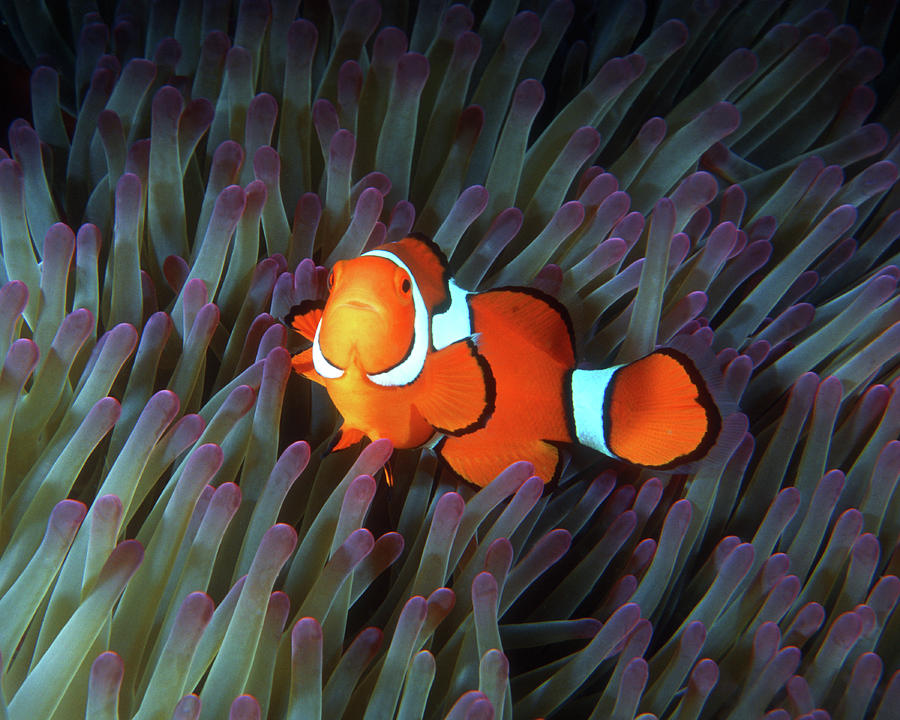
Clownfish in Anemone, Great Barrier Reef 5 Photograph by Pauline Walsh Jacobson Pixels
The species can be diagnosed by: 1) a white caudal fin 2) a dull, brownish coloration 3) relatively thin white stripes, disconnected dorsally. Since then, this fish has been found nearby in New South Wales, along with a disjunct population (itself likely to be another undescribed species) in New Caledonia, the Loyalty Islands and Vanuatu.

Great Barrier Reef Tours Cairns
Tucked away in a small shed in Central Queensland is a program that is aiming to stop Nemo from disappearing from the Great Barrier Reef. Key points: An environment centre sets up a breeding program to supply clownfish to pet shops because many fish are being "pilfered" from reefs
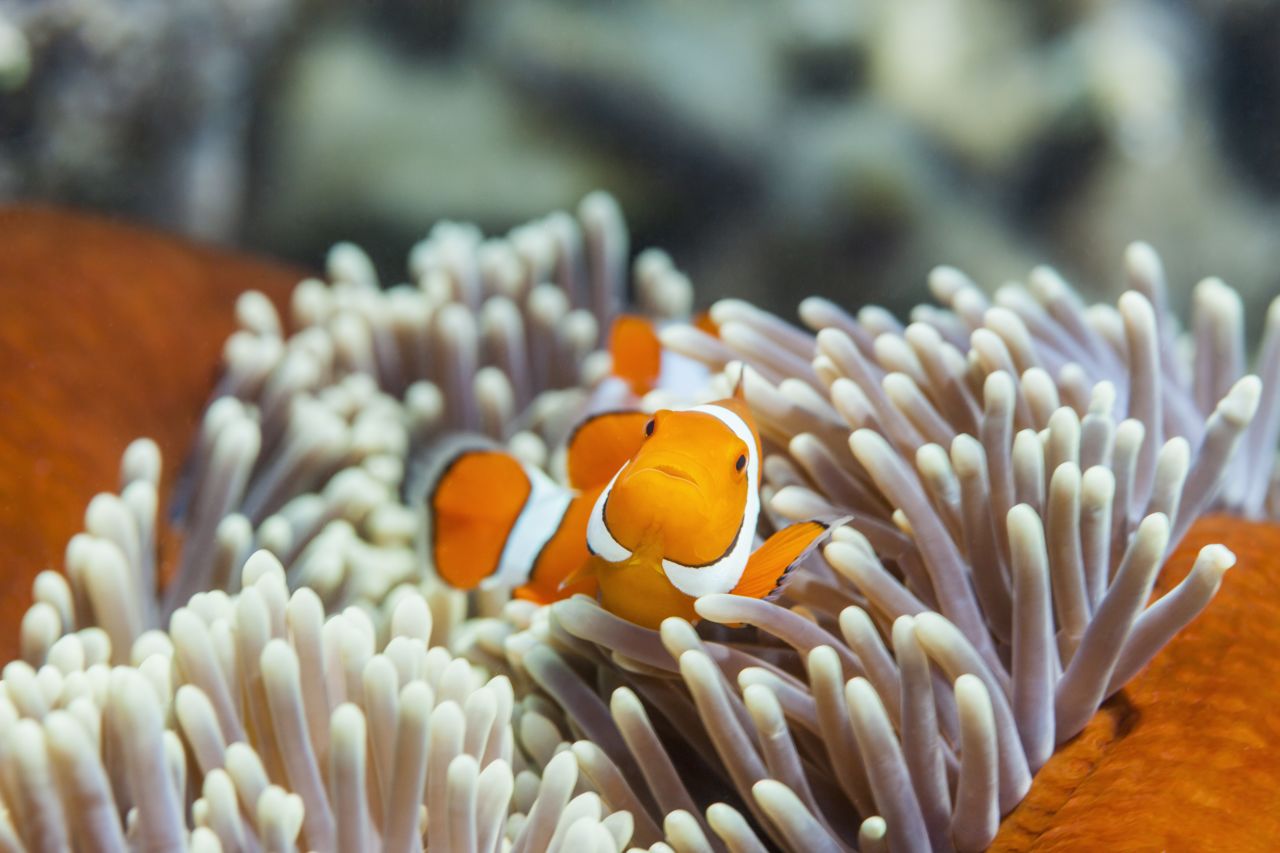
Clownfish Facts Great Barrier Reef Foundation Great Barrier Reef Foundation
Anemonefish on the Great Barrier Reef. Anemonefish, or clownfish, are small and colourful marine fish belonging to Pomacentridae. They are well-known for their symbiotic relationship with sea anemones, a fascinating aspect of their biology. Here are some interesting facts about Anemonefish: Symbiotic Relationship:
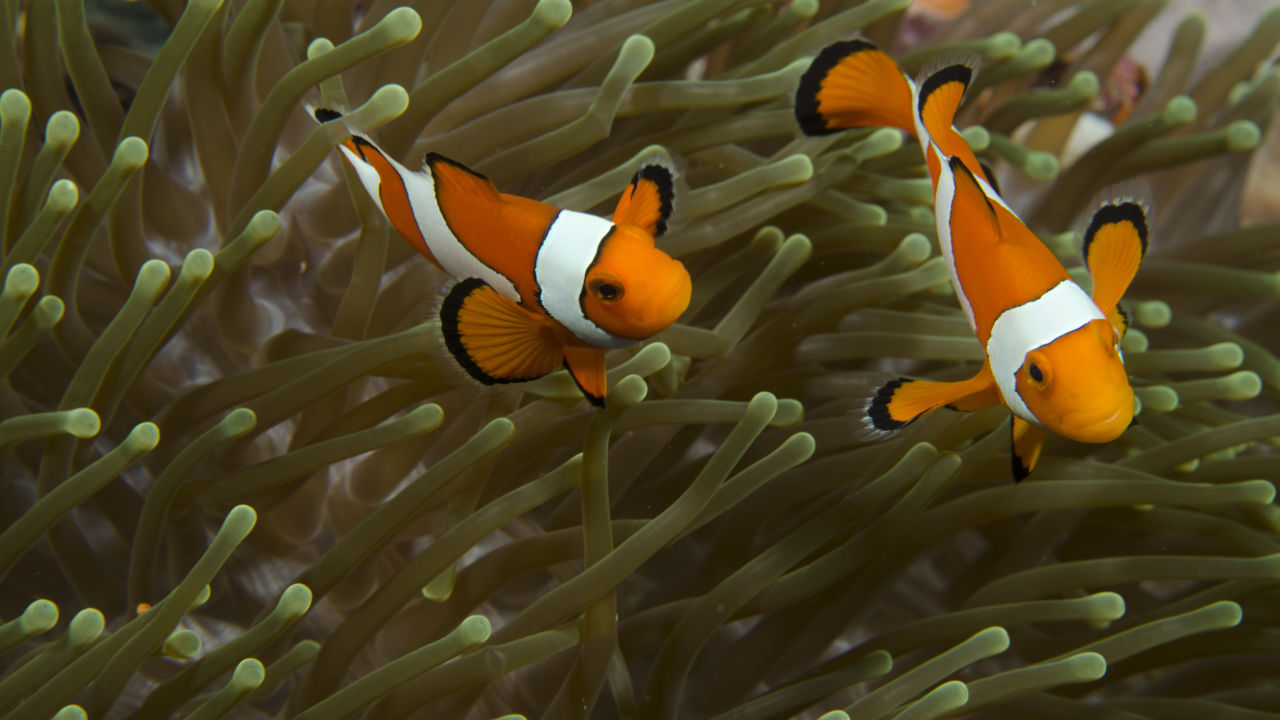
Clownfish Facts Great Barrier Reef Foundation Great Barrier Reef Foundation
Where do they live? They live in water depths of 1 to 12 metres in coral reefs. Clownfish live in Queensland and Melanesia's tropical marine seas. They are well-known throughout Australia's Great Barrier Reef. Only Clownfish and damselfish fish may escape an anemone's lethal stings.